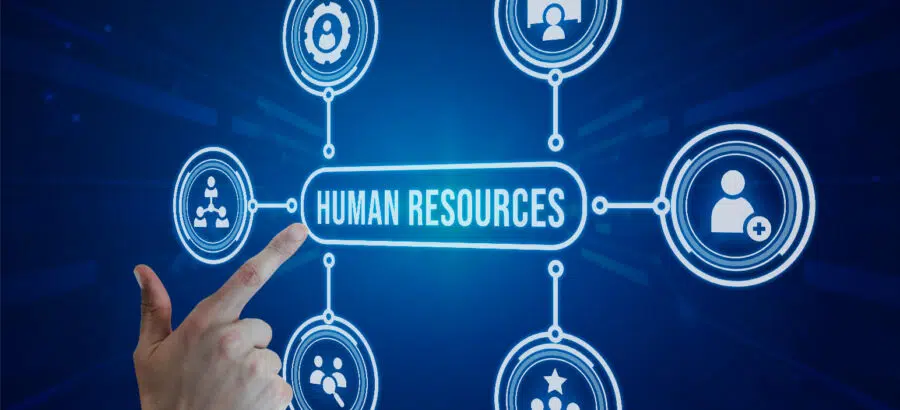Customer Relationship Management (CRM) systems are cloud-based tech software used by organizations to effectively and systematically manage and record/store customer data and interactions.
CRMs are desirable both in private and commercial sectors especially for managing customer information as well as identifying sales opportunities. But, for non-profits, there’s always a cloud of doubt somewhere as to whether they need CRMs or not. And because they don’t usually “sell” any product, this decision is always a tough one.
Unlike business ventures who don’t mind taking advantage of software to boost the quality and quantity of their services, non-profit organizations may hesitate to invest money, especially if it’s a lot, to achieve organizational goals because of the financial restrictions.
However, if they land an effective software built for non-profits, then it would mean they can now get rid of the never-ending obstacles that constantly drag them behind. As such, they can focus and channel more efforts to the things that require their attention.
In what other ways do CRMs make sense for non-profits? Are there are any tangible benefits of CRMs to nonprofits? Let’s find out.
How do CRMs benefit Nonprofits?
Though the purpose and functionalities of CRMs may not instinctively come out as relevant to non-profits, customer relationship management systems are still extremely beneficial to nonprofits because of their mission-driven nature.
At the very surface, CRMs allow nonprofits to maintain strong relationships with all its constituents, track membership activities, streamline the donation process, and segment supporters based on interest areas and issues. Nonprofits can also manage their data more efficiently and confidently with CRMs.
Let’s look deeper.
- Centralize information
Despite all the technological advancements in the recent past, most nonprofits still use Excel spreadsheets to manage and store contact data. These spreadsheets are managed by different people and storing data in such spreadsheets is bound to result in incomplete, inaccurate or outdated data making it nearly impossible to track historical data.
However, with a CRM built for nonprofits, storing data is much easier and safer. The data is stored in one, organized place which is always easily accessible to all team members. And besides, you can easily track all the changes made by each team.
- Segment contact types
One of the limitations of the systems used by nonprofits to store and manage data is the daunting task of list segmentation, especially when dealing with inaccurate, outdated and/or data that is not in the same format.
With a CRM, you are guaranteed high-quality data that can easily be segmented based on your preferred criteria. If it’s contacts data you are dealing with, you can segment the data based on interest area, constituent type, geographic locations, etc. Consequently, you can then export the lists for use in your outreach campaigns.
- Know your audience
Knowing your audience makes it easier to tailor a relationship-building strategy for each of your audience groups. A CRM gives you the power to track and record your audience’s activities and behavior including events they have attended or volunteering campaigns they’ve recently signed up for. Having this holistic view of your audience is critical to non-profits and it’s only possible with a functional CRM.
 Choosing a CRM for Your Nonprofit
Choosing a CRM for Your Nonprofit
CRMs come in different shapes and it’s only prudent to delve deep into the factors that would influence your choice of a CRM before committing your resources.
Below is a list of some of the key considerations you’ll have to think about.
- Consider your requirements
Before anything else comes to mind, review your requirements and identify your priorities. What’s is so important to you? Is it segmenting your contacts, do you want to improve reporting or you just want a more robust contacts record?
If you can understand your requirements, then it would be easy to define and classify the functionalities you need into groups of must-haves, nice-to-to-have or the ones you don’t need at all.
- Think of your internal users
Take a deeper look at your internal team and understand which group needs access to what, and how their technical and analytical skills are set up. If you can picture what your team can offer from both a contact relationship and a technical perspective, then it’s easier to decide whether you need a complex, simple out-of-the-box solution or a customizable CRM solution.
- Gauge your existing tools
Take a moment and think about your current digital ecosystem to identify which tools and platforms should be compatible with your CRM. Once that’s achieved, choosing a CRM becomes a less strenuous task.
At a base level, you’ll want to ensure your selected CRM integrates seamlessly with your website’s CMS, email marketing platform, timesheet management system, social media accounts, and task allocation systems. The list of dependent tools varies depending on what a non-profit considers important to them.
- Your budget
Finally, think of your budget. How far are you willing to stretch? In most cases, CRMs are billed based on the number of users and contacts. Look at the totals of both and compare them with the packages offered by the CRM provider to get a rough picture of your CRM investment.
Final thoughts
Keeping your nonprofit organized and efficient requires some investment in a reliable CRM system. Making the right choice while selecting a CRM puts your nonprofit organization on the right path to achieve your goals and maximize your impact in the community.
Plumlogix has a dedicated team of Salesforce professionals who are not only passionate about helping nonprofits but also have the requisite experience, training, and tools to help you understand the benefits of a CRM to your organization and finally help you implement one. Talk to us today.




 Choosing a CRM for Your Nonprofit
Choosing a CRM for Your Nonprofit
